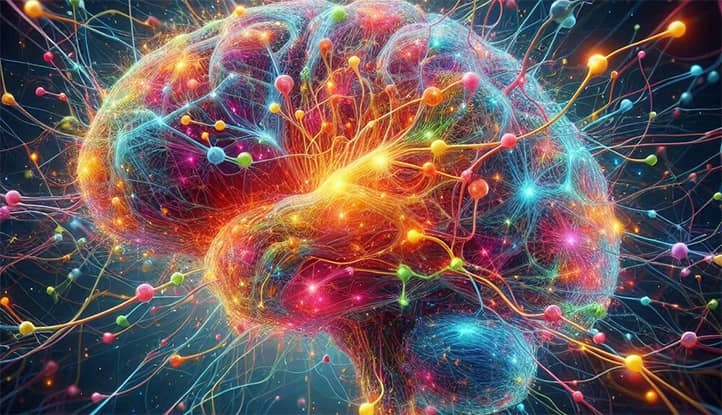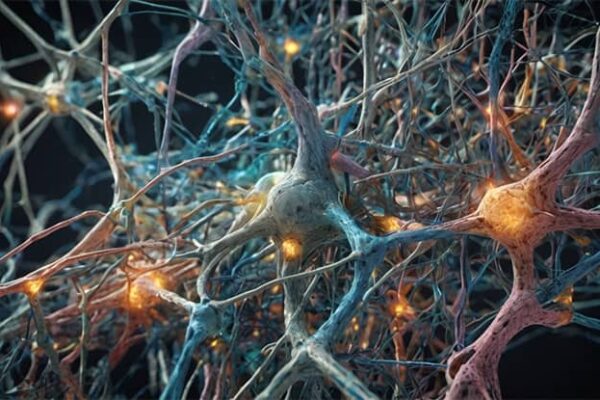Higher mental functions (HMF) are complex mental processes that play a key role in human cognitive activity. They differ from elementary mental processes by their complexity, intentionality, and mediation. Understanding higher mental functions is of great importance to psychology, pedagogy, neuroscience, and other fields related to the study of the human brain and behavior.
Types of Memory: Why Some Things Are Forgotten and Others Remain
Memory is an astonishing and complex ability of our brain that allows us to retain and reproduce information, accumulate life experiences, and shape our personality. Without memory, we wouldn’t be able to learn, grow, or adapt to changing environmental conditions. However, not everything we experience and learn remains with us forever. Some memories disappear almost […]
What is Sadism: An Exploration of the Dark Side of Human Nature
Sadism – one of the most controversial and troubling manifestations of human nature. This phenomenon, which evokes both disgust and morbid curiosity, prompts reflection on the boundaries of human cruelty and its origins. In modern society, where violence is often condemned and deemed unacceptable, sadism remains a subject that arouses strong emotions and debates.
Affective Disorders: Symptoms and Early Diagnosis
Affective disorders are a group of mental illnesses characterized by significant disturbances in the emotional sphere. These disorders can seriously affect a person’s quality of life, work capacity, and social relationships. Early diagnosis of affective disorders plays a crucial role in effective treatment and prevention of complications.
Invisible wounds: how Ukraine can deal with the psychological consequences of war
The War in Ukraine, which Began in 2014 and Intensified Sharply in 2022, has Left a Deep Mark Not Only on the Country’s Infrastructure but also in the Hearts and Minds of Millions of Ukrainians. In addition to the obvious physical destruction, it has inflicted tremendous damage on the psychological health of the population. These […]
Twin Method as a Tool for Studying Mental Disorders
The twin method is one of the most powerful tools in the arsenal of geneticists and psychiatrists for studying the role of heredity and the environment in the development of mental disorders. This method is based on comparing the similarity between monozygotic (identical) and dizygotic (fraternal) twins, allowing researchers to assess the contribution of genetic […]
Higher Nervous Activity: A Guide to the Human Brain
Higher Nervous Activity (HNA) is the complex process occurring in the central nervous system of humans and higher animals. The term “higher nervous activity” was introduced by the prominent Russian physiologist I.P. Pavlov to denote the neurophysiological mechanisms underlying mental functions.
The Psychology of Success: Why Private School Graduates Achieve More
In today’s world, where competition in the job market is becoming increasingly intense, the issue of success and the factors that influence it is of particular relevance. One interesting aspect of this topic is the phenomenon of private school graduates, who, according to numerous studies, often achieve greater success in life compared to their peers […]
Acoustic-Mnestic Aphasia: Neurological and Psychological Aspects
Acoustic-mnestic aphasia is a complex speech function disorder that significantly affects the lives of patients and their loved ones. This type of aphasia is characterized by specific problems in speech perception and reproduction, making it unique among other forms of speech disorders.
Deviant behavior: problems and solutions
Deviant behavior represents a significant deviation from the norms and values accepted in society. It can include actions that violate legal or ethical standards, as well as traditions and customs. The problem of deviant behavior is complex and multifaceted, affecting various areas of social life.
Social Maladjustment: Signs, Causes and Consequences
Social maladjustment is a condition in which a person experiences significant difficulties with socialization and integration into society. This phenomenon is characterized by an individual’s impaired ability to effectively interact with others, follow generally accepted norms and rules of behavior, and adapt to changes in the social environment.
The Placebo Effect: Faith as Medicine
The placebo effect is a mysterious phenomenon that has long puzzled scientists and doctors. It represents a positive therapeutic response to an inert substance or procedure that lacks specific therapeutic activity for a given condition. In Latin, “placebo” means “I will please,” or “I will be agreeable.” The term “placebo” was used to describe “dummy” […]
Hippotherapy: A Scientific Look at the Healing Power of Horses
Hippotherapy (from the Greek “hippos” – horse) is a type of therapy that combines elements of physiotherapy, psychotherapy, and horse riding. Under the guidance of specialists, patients perform various exercises, interact with and engage with horses, which positively influences both their physical and mental well-being.
Character Accentuations: What does Your Personality Say аbout You?
Every person is unique, and this uniqueness manifests not only in appearance but also in personality traits, behaviors, and emotional reactions. The term “character accentuations” refers to pronounced character traits that can be either positive or negative, depending on the situation and the degree of their expression.
Who is a Choleric Person: a Natural Leader or an Uncontrollable Rebel?
Choleric is one of the four types of temperament described by the ancient Greek physician Hippocrates. This personality type is characterized by high emotionality, energy, and determination. Understanding the features of the choleric temperament can help a person get to know themselves better, unlock their strengths, and learn how to interact effectively with others.














